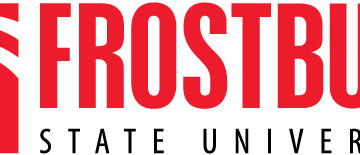Reconsidering the First Amendment: The Case for Libel
Supreme Court Justice Clarence Thomas calls for the Supreme Court to reconsider the landmark ruling about libel speech in the 1964 case of New York Times v. Sullivan. The case established the idea that the First Amendment protects newspapers and media outlets, even in times where false statements are given, so long as the media outlets did not act with “actual” malice.
What is libel?
The term “libel” is relatively interchangeable with the term “slander,” though there are some minor differences. Libel is any defamation that can be seen, like newspaper printings, articles, books, movies, drawings, and even statues. Slander is any defamation that is specifically heard or spoken.
New York Times v. Sullivan (1964)
In 1964, the Supreme Court case of The New York Times v. Sullivan established the First Amendment precedent that protects newspapers and media outlets in cases where public officials file suits of libel against them. An elected official in Montgomery, Ala. filed suit against a corporate petitioner’s newspaper after the newspaper printed an advertisement that included false statements about police action against civil rights demonstrators, as well as leader of the movement itself.
The Supreme Court heard the case on Jan. 6, 1964, and a decision was made on the case just three months later, on March 9, 1964. Justice William Brennan presented the opinion to the Court, while Justices Hugo Black and Arthur Goldberg delivered concurring opinions to the Court following Brennan.
The Court announced, unanimously, a “constitutional standard which prohibits a public official from recovering damages for a defamatory falsehood relating to his official conduct unless he proves that the statement was made with ‘actual malice’ — that is, with knowledge that it was false or with reckless disregard of whether it was false or not.”
In other words, should a newspaper or media outlet print or publish a piece that includes false statements about a public official, said public official has to prove that the writer acted with complete disregard to the facts. In addition, the public official must also prove that the piece(s) published actually included falsehoods about them and harmed their reputation.
Why reconsider now?
Justice Clarence Thomas’s call for reconsideration of the libel laws upheld by the First Amendment came following President Trump’s remarks that libel laws make it “too hard for public officials to win libel suits.” All along the campaign trail, Trump spoke of how he would “open up our libel laws so when they write purposefully negative and horrible and false articles, we can sue them and win lots of money.”
Libel laws established in NYT v. Sullivan do make it more difficult for public officials to win libel suits, and the standards the Supreme Court held in the 1964 decision are being questioned by Justice Thomas.
Justice Thomas wrote that “there appears to be little historical evidence suggesting the the New York Times actual malice rule flows from the original understanding of the First or Fourteenth Amendments.” Justice Thomas was not alone in his questioning of the libel laws, as the late Justice Antonin Scalia made note of his opinions on libel laws in many of his speeches and deliverings.
Thomas called the Supreme Court to reconsider NYT v. Sullivan in company with an appeals court decision not to hear the case of a young woman who accused Bill Cosby of sexual misconduct back in 2014. Thomas declares that he believes the 1964 case was decided wrong.
Reconsidering the 1964 decision, and in turn the current libel laws, could potentially weaken the First Amendment’s protections of free speech and free press, both of which are hallmarks of a democracy.
Relaxing libel laws would make it much easier for public officials to take up suit with media and newspaper outlets of all sizes, and it would make it much easier for those public officials to win.
Nonetheless, should the Supreme Court elect to hear and reconsider the case that has set the precedent for libel laws for over half a century, it would have to be soon. The Supreme Court is generally in session, and hearing cases, from the first Monday in October to late June-early July.
At this point, many are unsure that the Supreme Court will actually reconsider libel laws, or whether any stretch of agreement will be reached if it does. This is due in part because both of President Trump’s Supreme Court nominees, Justices Gorsuch and Kavanaugh, have largely supported broad and all-encompassing libel laws. Of the remaining six Justices on the Supreme Court, most have yet to express any opinion on hearing and reconsidering libel laws.
Whether Justice Thomas’s call for reconsideration will come to fruition or not, at this point, remains to be unseen.



